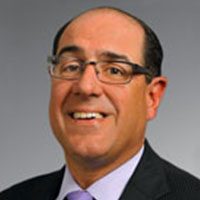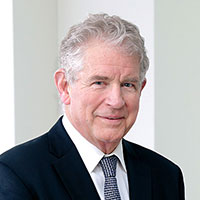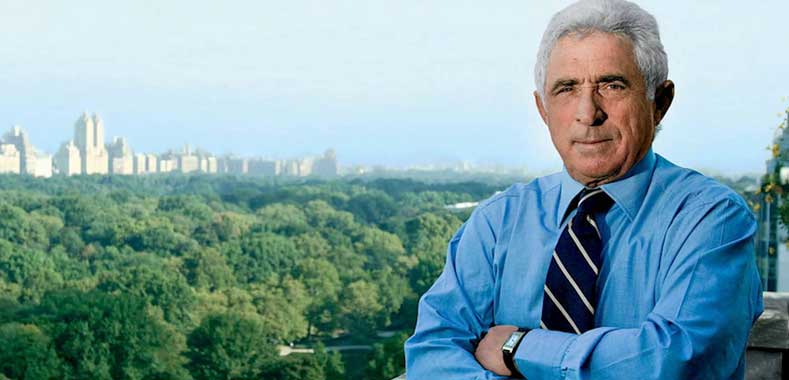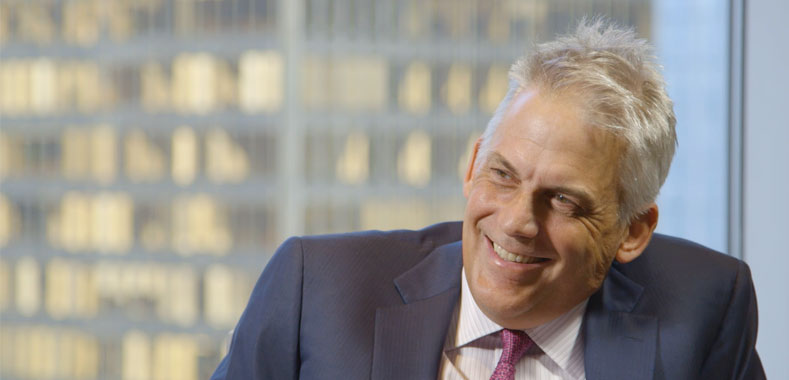Powerhouses in PE—Jay Jordan of The Jordan Company
One of the original buyout firms in the world, The Jordan Company, was founded by a ‘Missouri boy’ who eschews a ‘hot shot attitude’ when trying to forge a partnership with entrepreneurs and management teams. The low key culture of TJC, together with several decades of astute investment decisions, has paid off in a big way. Privcap’s interview with Jordan also includes his personal history, why he favors a generalist approach and where he sees the private equity industry headed.
Transcript Download Transcript
Powerhouses in Private Equity
With Jay Jordan of The Jordan Company
Don Lipari, RSM:
Hi. This is Don Lipari, national leader of private equity for RSM. I’m speaking today with Jay Jordan in our next segment: Powerhouses in Private Equity. Hi, Jay. Welcome.
Jay Jordan, The Jordan Company:
How are you?
Lipari: I’m excellent, thanks. Why do business owners sell to The Jordan Company?
Jordan: As opposed to somebody else?
Lipari: As opposed to any other guy with money.
Jordan: It really comes down to chemistry, doesn’t it? Money’s fungible; [there’s] a lot of money around. And we pay very competitive prices. We obviously do or we wouldn’t have been able to do all that we’ve done. We’ve done probably 120 platform acquisitions and 300 or 400 add-ons. I don’t know, we’ve never really counted them up. But it doesn’t come down to the money issue, it comes down to the chemistry issue.
Lipari: So, why do they want to be your partner?
Jordan: Oh hell, I have no idea. You have to ask them. We’re pretty low-key. A lot of these firms go in and they’re big hotshots from Wall Street. That’s just not our… I’m a Missouri boy, born and bred, and the “Show Me” state—we’re kind of laid back and we don’t come in with a real hotshot attitude. The problem with some of the younger folks in this business is they think they know more than the folks running the business and that’s just a death knell. That served us well, because that’s not an attitude that we project.
When our young guys—I try to take them around and show them the ropes. When we meet with some of the owners, they said, “Today, we’ll ask a few questions about the business, but this is not a due diligence. Our goal here is to get them. When we leave, I want them to be thinking that they want to do business with us. That’s who they want to do business with. That’s all we need to accomplish. We’ll get to the other stuff later, that’s less important.” That’s the approach we take.
Lipari: That’s the secret sauce.
Jordan: Yeah, I guess so. Yes.
Lipari: Let’s go back all the way to your growing up in Kansas City. I read something that said instead of dreaming of playing for the Kansas City Chiefs as quarterback, you were dreaming as a boy of buying companies.
Jordan: That’s a little bit of an exaggeration, but I was dreaming about financial success—let’s put it that way. The mechanism ended up being buying companies in what’s now known as the private equity world, yes.
I went to Columbia Business School and I started with Carl Marks & Company in November of 1972, part-time. Then, I became full-time in August of ’73.
Lipari: August of ’73.
Jordan: Right. That kind of started it out.
Lipari: What were you doing for Carl Marks?
Jordan: At the time I joined them, they were in three different asset classes in investing. Number one, growth equity investments through—they had an SBIC and we were investing the family’s money and the firm’s money. They did some real estate and they made venture capital investments. So, I started really working in the venture capital portfolio—when I joined them actually part-time—and then for the first couple years from ’73 to ’75.
Lipari: In 1982, you and David Zalaznick form The Jordan Company.
Jordan: The Jordan Company. I had hired David at Carl Marks in 1980 and he came in to help support the activities. I had started, or founded, their buyout business—they called it “Bootstraps” back then—in the early ‘70s. Then, I built up a portfolio of about 20 companies. I brought David in in 1980; then, in 1982, we left to co-found The Jordan Company.
Lipari: What were you doing? What was the thesis?
Jordan: The thesis was that we were buying companies for our partnership account. We had no source of funds, so we were syndicating them on a deal-by-deal basis. We’d find a company we liked, we’d negotiate the transaction and the financing and bring in some equity partners and hopefully end up with a reasonable piece of the ownership ourselves. And it worked out very successfully, yes.
Lipari: What was of interest to you guys? Purely opportunistic?
Jordan: Yes. We’re purely opportunistic. I think nobody really is focused on specialties and there weren’t that many folks doing the buyouts at that point. We weren’t big on apparel or high-tech. It was just mainstream businesses that we understood and we felt had a growth component to them and played well in the U.S. economy. There wasn’t a lot of globalization then either, so most of the companies were domestically focused.
Lipari: Talk about how you differentiated yourselves.
Jordan: There weren’t many players, so there wasn’t a lot of competition. In terms of separating ourselves from the pack, there was no pack, so we just went about our business. We didn’t really know what everybody else was doing and they didn’t know what we were doing. But the universe of companies was so large and there were so few people doing it that we were very lucky and fortunate that we were able to establish a platform early on, when there wasn’t a lot of competition. So, we’ve never been anything but opportunistic. We’ve never focused on any particular industry. We like diversification. We’re sort of a jack of all trades and probably master of none, but it’s worked out for us.
Lipari: Forbes called you or called your operation “Masters of the Mundane.”
Jordan: That’s right.
Lipari: Talk about that.
Jordan: Everything we did was sort of mundane and boring. It wasn’t boring when we cashed in. But we were vow and regulator guys, furniture guys—nothing real exciting, but profitable. So, they coined this phrase “Masters of the Mundane.”
Lipari: You see so many investment opportunities. You’re very selective. What do you look for?
Jordan: Management is the real key. Once we’ve decided that it’s an industry that appeals to us, there are a lot of different businesses in an industry, a lot of different management teams and different styles. It really comes down to the people. People are going to make us successful or not and if we’ve selected an appropriate industry. As Warren Buffett used to say, “If you marry great management with bad economics, the bad economics are going to win every time.” Bad economics being bad industry or bad business. So, we try to focus on focusing on growth opportunities. Then, it’s all about management.
Lipari: When you think back upon your deals, which one do you think about that still makes a bead of sweat appear on your forehead?
Jordan: A bead of sweat of delight or of chagrin?
Lipari: A bead of sweat of recalling the stress of operating that business or of that investment.
Jordan: We’ve had a number. I’m not going to give you any names, because I want to protect the innocent.
We ventured into an industry that we didn’t particularly enjoy. I don’t know why we did it, but it was in the apparel industry. We had a bad experience there. We’ve made others, but a lot of it has to do with—sometimes, the management doesn’t work out as well as you think. Sometimes, the economics don’t work out because of the industry. We don’t like cyclical industries, but everything’s cyclical in some respects. One of the advantages we have is that we don’t use a lot of leverage. That’s good and that’s helped us a lot, particularly in the 2008 period—‘08 and ’09.
Lipari: When your grandkids are on your lap and you’re thinking about your career, which deal do you like to recall and tell them the story of?
Jordan: Probably my Russian experience.
Lipari: Talk about that.
Jordan: It’s the most interesting. We built the largest cable-TV network in the Russian Federation. It began in 1998 and I was spending a week every five weeks in Moscow setting it up. We sold it to a company called Systema, which was a very legitimate telephony company located in Moscow but traded on the London AIM Exchange. We built it up over eight years and it was quite successful.
Lipari: You liked spending time in Russia? Did you enjoy—
Jordan: It was kind of interesting, yes. We went in when everybody was going out in August of 1998, as you recall. They divided and defaulted on the same day in August and all hell broke loose—[it was] total chaos. But we were able to get in there, get in there cheap and do what we had to do. And very legitimate. I was really shocked.
Lipari: Talk about the continued evolution of private equity. What does private equity in the world look like in 2022?
Jordan: In 2022, I think you’ll you have a consolidation. A lot of firms out there are liking the hedge-fund business. There are like 1,200 hedge funds that have gone out of business in the last year. I think that’s going to happen in private equity as well, because the LPs, the investors, are trying to consolidate their own focus. They want to invest more in fewer private equity firms and focus on downsizing the number of firms.
Lipari: What’s next for TJC?
Jordan: We’re just keep on keeping on. It’s an old Missouri expression: “You just keep on keeping on.” We’ve been growing and progressing and we pretty much established our niche in the marketplace. That’s where we’re going to stay and we will continue to do what we’ve done in the past. Another Missouri expression: “If it ain’t broke, don’t fix it.” We’re not doing any fixing, because it’s doing real well.
Lipari: What do you want Jay Jordan’s legacy to be?
Jordan: My legacy and the only legacy that matters to me is are my children proud of me? That’s it. I don’t care about anything else. If my children are proud of me, I’m happy.











